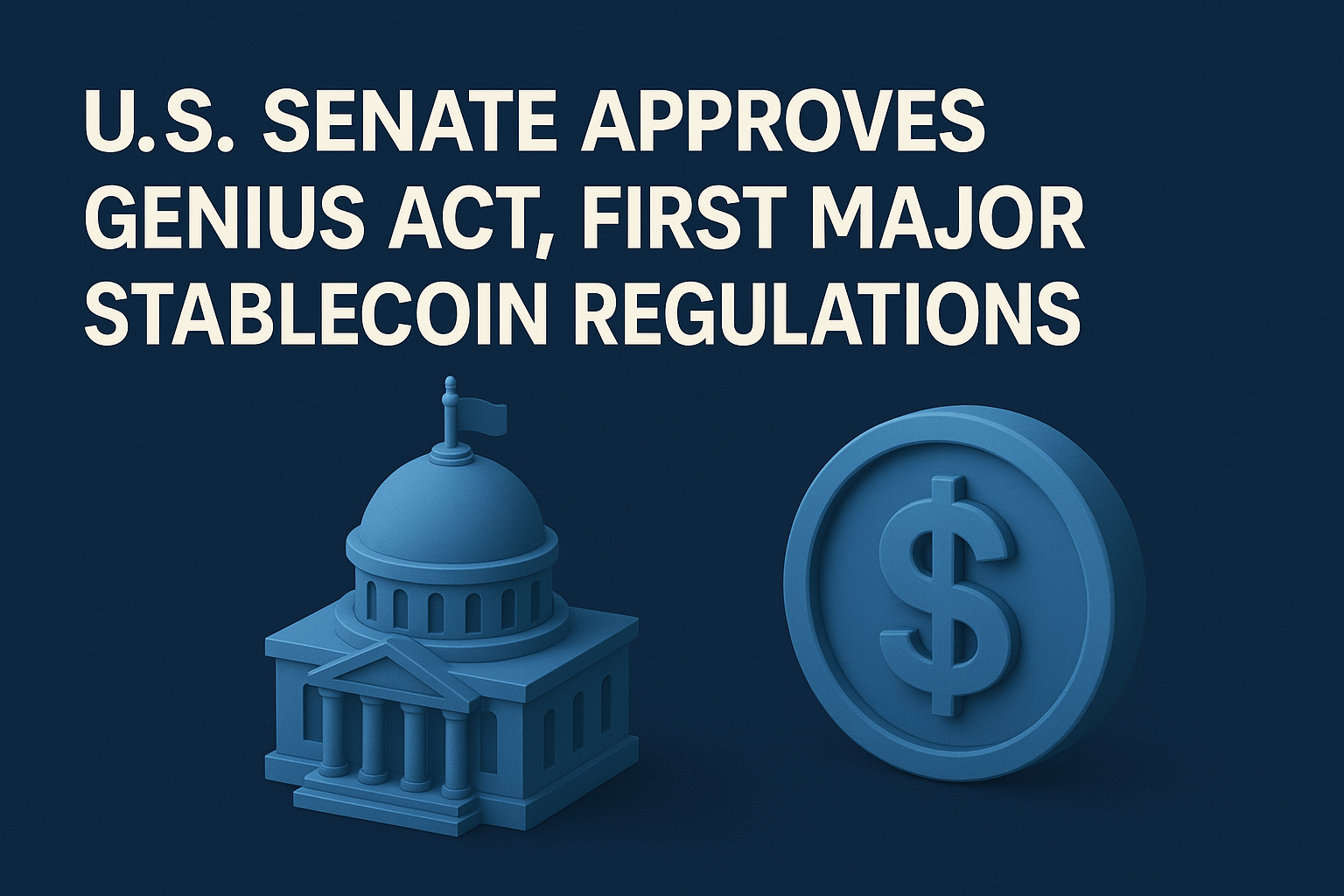In a groundbreaking move, the U.S. Senate has passed the GENIUS Act, setting a historic precedent by introducing the nation’s first formal regulatory framework for stablecoins. The bill passed with strong bipartisan support, receiving a 68–30 vote, including votes from 18 Democrats who crossed party lines. The legislation now advances to the House of Representatives, where it’s expected to be fast-tracked ahead of the summer recess.
What the GENIUS Act Entails
Short for Guiding and Establishing National Innovation for U.S. Stablecoins, the GENIUS Act mandates that stablecoins must be issued by regulated entities such as insured banks or licensed financial institutions. Smaller issuers can operate under state oversight, while larger players—those managing over $10 billion in assets—will come under federal supervision. The law also requires that all issued stablecoins be backed 1:1 with cash or Treasury bills, along with transparent monthly reserve disclosures and yearly audits.
Boosting Market Trust and Innovation
Supporters of the bill believe it will bring both consumer protection and innovation to the fast-growing $240 billion stablecoin market. Senator Bill Hagerty, who sponsored the bill, emphasized that the legislation strengthens the U.S. dollar’s position in digital payments. Crypto industry leaders also welcomed the act, saying it brings long-needed clarity and regulation to a sector previously marked by uncertainty and hesitation among institutional investors.
Pushback from Critics
Despite its broad support, the GENIUS Act hasn’t been without criticism. Senator Elizabeth Warren voiced concerns that the bill doesn’t go far enough to address systemic risk and may leave loopholes for large tech companies to launch unregulated digital currencies. Other lawmakers questioned the potential conflicts of interest stemming from ties between crypto companies and political figures, demanding more robust accountability.
Next Steps in Crypto Legislation
With the House likely to debate amendments or merge the GENIUS Act into broader crypto regulatory efforts, the final version may evolve. Nevertheless, its passage in the Senate represents a major turning point in how the U.S. approaches digital assets. The next few weeks could redefine the rules of engagement for stablecoin issuers and set the tone for wider crypto reforms.
Broader Impact on the Financial Landscape
For fintech companies, the GENIUS Act offers a green light to innovate within a stable regulatory framework. For consumers, it promises greater security and transparency. And for global markets, it positions the U.S. as a frontrunner in digital finance oversight, potentially influencing international policies and accelerating the adoption of compliant stablecoin models.










